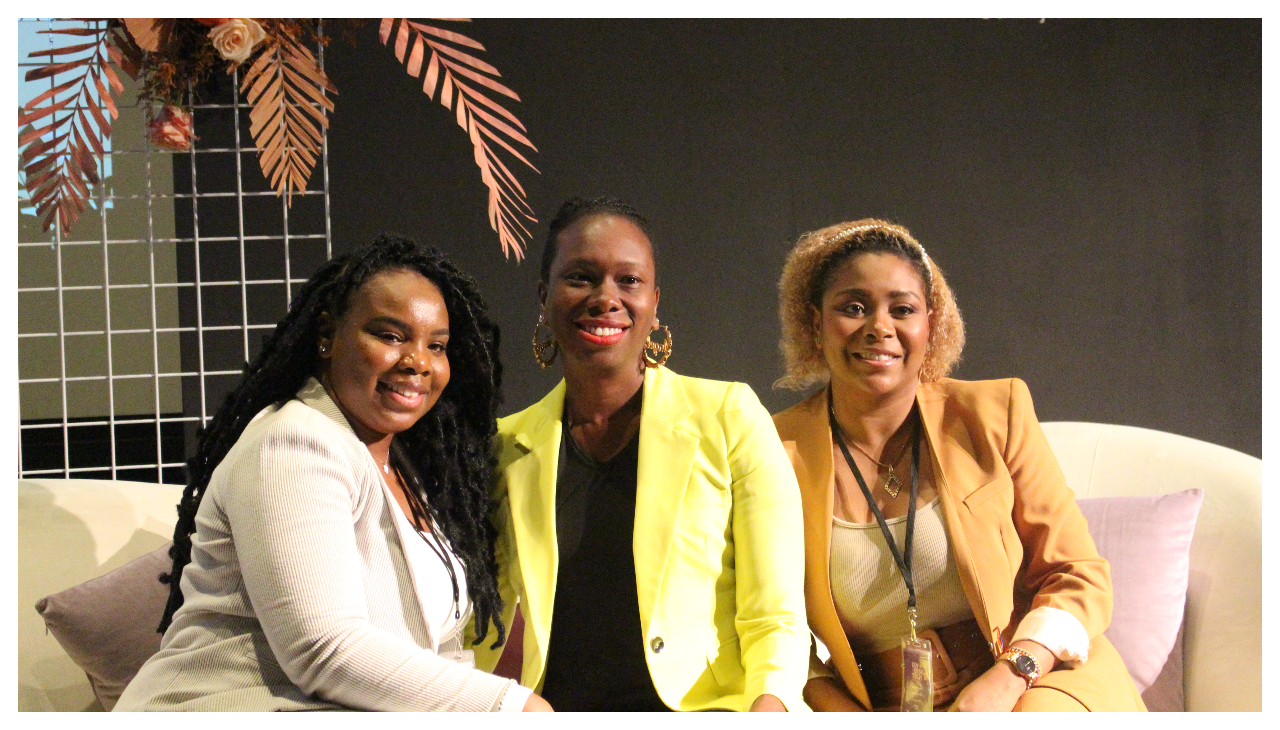
Advice for women working in tech, from female tech leaders
From May 3 to May 5, 2023, Tribaja, a talent development company, hosted a series of panels discussing diversity in the tech industry, called Diversitech. One such panel focused on women working in the field, titled “Let's Get In Formation: Tech Talks with Women in Tech Leadership.”
The panel consisted of Angel Johnson, who was recently hired as the Director and Business Information Security Partner for Walmart Global Tech; and Sandra Mosquera, the Vice President, API Marketplace Product Manager for JPMorgan Chase & Co.
The panel was moderated by Jacqueline Mitchell, a People Operations Business Partner for Spruce Holdings.
First hand lessons
As someone with over 25 years of experience in the tech field, Johnson began with a recollection of the challenges she faced as a woman of color in a predominantly White, male industry.
As a student at Temple University, Johnson took on a C++ coding course as a part of her major, Computer Information Systems. During this course, she faced difficulty in learning the language and was set to fail the class.
When she brought her academic concerns to her professor, his only advice for her was to consider changing her major.
“We don't get to these places by ourselves. So my crew — a couple of my good friends — they were like, 'You know what? You should just take it again and go with a different professor'... And I took it again, and I passed,” Johnson explained.
From this experience, she learned that it was important to have a supportive group of people who would look out for your interests, and to cultivate self confidence, especially in the face of failure.
Born in Colombia, Mosquera came to the U.S. to study law. But when she arrived, she had not known that while Colombian law schools only required a bachelor’s degree, the U.S. required it to be taken at a Master’s degree level.
Working part-time at night to afford her classes, Mosquera enrolled in an information systems course as one of the three offerings available to her. As her father was an engineer and one of her close friends in Colombia was an information systems manager, she was confident in her ability to learn as well.
While she had no interest or knowledge of coding, Mosquera was approached for a Java developer position for her understanding of databases, which would allow her to expedite Java developers queries.
While uncertain if she would take the job due to her own lack of experience with Java, Mosquera pursued the position, telling the recruiter that she would be willing to learn if they would teach her.
Her efforts netted her both the position and a mentor to help her enhance her understanding of the databases and gave her a two year position working as a Java developer.
Know your worth
When asked which skills are important for women in leadership positions to cultivate as they work in the tech industry, each had their own answer.
For Mosquera, it was communication. As a leader, the business aspect of the industry comes into play more, so being clear as to your business goals and what the extent of your knowledge is are both vital messages to convey.
A part of this communication is keeping a balanced temper, Mosquera said. Early in her first job, she was accused of being rude for confronting gossip about her in the office, and for requesting work to perform her job.
While it was successful, Mosquera realized that even though she wasn’t backing down from adversity, she needed to understand the people who she was speaking to and tailor her communication so it was understood the way she wanted it to be.
For Johnson, she sees confidence in your skills as key and to not let others put your skills up for debate when you know there is no need for them to be questioned.
Giving yourself grace
Discussing knowledge they had both known when they were starting their careers, Johnson spoke on her internship with GE Capital. There, she did not work on just one part of tech, but rotated through different fields, learning and experimenting with different elements.
“Give yourself some grace over the first 10 years of your career. Try, pivot, try, pivot,” Johnson explained, “In your early 20s, it's hard. You're still trying to get to know yourself, trying to get to know your gifts, trying to understand what you can see yourself doing.”
“You're also in tech [and] you're going to move through various things. There are things that I would have never even imagined back when I first started,” Johnson continued.
As she started in database development, she moved into mobile app projects, and has seen how vastly different the tech industry changes and evolves. Rather than fight the changing nature of the industry, the goal is to change with it, to stay flexible, and keep learning new skills.
Diversity isn’t skin deep
When it comes to promoting diversity in the workplace, Mosquera pushes for understanding diversity in a more complex way than simply having a black man or woman amid a monoracial team.
CONTENIDO RELACIONADO
Diversity doesn’t stop at race, but of their knowledge, their education. “If you are in a career and you don't like it, you can bring your skills and learn what I need you to learn,” Mosquera said.
For Johnson, hiring a diverse workforce is not enough. To retain employees, you need to develop your workplace culture.
While a diverse workplace may bring in more workers from different backgrounds, if they feel that they cannot bring in new ideas or live authentically, then it can create a “revolving door” as employees seek more accepting places.
This can be done by providing opportunities for advancement and promotions, or taking training classes or trying out different sets of responsibilities, so that they might grow their career as they work.
From diversity in the workplace, the panel turned towards creating an environment that promotes collaboration and mentorship among women in tech, such as through the conference itself, as Johnson noted.
Welcoming others into a new environment is also beneficial, Mosquera added. When they feel welcome, they will do the same to others as well. But when you are the only, or even the first person who is Black, or is Latino in an all White workplace, it can be difficult to feel welcome.
The responsibility of making the workplace a welcome environment is not yours, Mosquera says, but that it can be something you choose to take on. Instead of discussing touchy or painful subjects, you can instead focus on your commonalities, like sports or raising children to make that sense of relatability.
“Sometimes I'm like, ‘Why do I have to do this,’ and I tell myself, ‘I do it for the next person, so that the next person is not the only or the first,’” Mosquera explained.
Words of Advice
Ending the panel with words of advice, both panelists spoke on how to make a pitch for a new promotion.
When making a list of past accomplishments and career highlights, Johnson advocates for recording them as they happen, rather than wait until later to try and organize them.
Unlike a résumé, these can be comments made by coworkers who congratulate you on your work, or a project that you did good work on.
This is so that when a yearly review happens, or when you want to persuade your employer for a pay raise or promotion, you have a list of your accomplishments readily available.
“You're not trying to convince someone, it shouldn't necessarily be a pitch at that point, it is a reminder of all the amazing things that [you] have contributed,” Johnson explained.
Mosquera’s approach to this is similar. When you are working hard, or taking on extra responsibilities, or going above and beyond the job description, it is important to make sure that your efforts are recognized, otherwise your hard work will go unnoticed and unappreciated.
“You can't just sit and be unhappy, or not take charge of your own life. We all get to lead the lives that we want to lead, so you have to ask for what you want and not expect someone else just to deliver it for you,” Johnson concluded.










DEJE UN COMENTARIO:
¡Únete a la discusión! Deja un comentario.